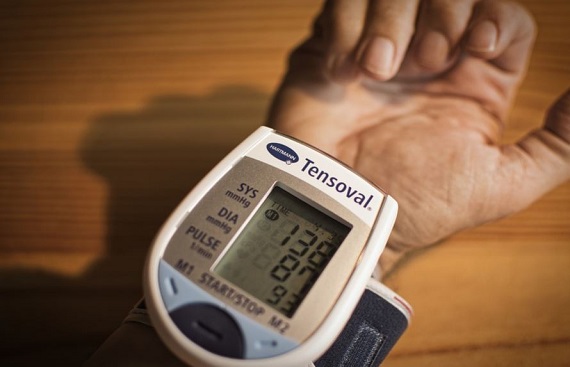Hypertension Dietary Tips

Hypertension, commonly known as high blood pressure, is a dangerous condition that one is more likely to acquire with age. But what does 'blood pressure' mean? 'Blood pressure' is the force created when the blood presses against the walls of the arteries. The stronger the force is, the harder the heart needs to work. This condition may seem harmless enough. But it predisposes the patient to an increased risk of many serious health conditions, including heart disease and kidney disease.
Some Diet Tips for Hypertension
Hypertension can be kept in control. If a patient leads a healthy lifestyle, gets enough sleep, and doesn't suffer from too much stress, they should be fine. There are also medicines to keep blood pressure in check. However, diet management is the real challenge. Certain foods are very harmful to hypertension sufferers. Obesity is particularly dangerous for such patients, so control of the diet is essential.
1. Reduce Salt in the Diet: Sodium, which is usually served as common salt, is to be avoided as much as possible as it has been linked to an increased risk of hypertension. We might not realize how much salt we eat as many processed foods are full of it. If salt is added to food in the cooking stage, we shouldn't add any more when serving the meal. Food in restaurants and takeaways are often loaded with salt, so it's better to eat homecooked meals whenever possible.
2. Reduce Fats in the Diet: If we wish to eat meat, we should stick to fish and poultry rather than red meat. And if we must eat red meat, all the fat should be removed. When we eat dairy products, they should be low-fat, such as skim milk, plain yogurt, and cottage cheese. We should try to avoid sweets at least until the blood pressure is under control. After that, take only sparingly.
3. Drink Plenty of Water: Drinking water hydrates the body and helps to balance the blood pressure. It is known that drinking plenty of water is a contributing factor to lowering blood pressure significantly. So, anyone with hypertension should make an effort to drink several glasses of fresh water every day. Besides lowering hypertension, there are many benefits of drinking water every day. It also helps to balance a person's weight. By drinking more water, they feel less hungry and are less prone to overeating.
4. Increase the Amount of Fresh Fruit and Vegetables in the Diet: Food should be taken as close to its natural state as possible. The benefits of raw fruit and vegetables in the diet are many. Eating fresh fruit is a great idea. The fruit's not processed, so it doesn't contain extra salt, and if you eat a salad of lettuce, tomatoes, onions, and cucumber, you're taking food in a natural state. You get all the nutrition from these vegetables, without having the vitamins and minerals eliminated by cooking. You'll also avoid any extra salt.
5. Increase Calcium in the Diet: Some dietitians believe that calcium is good for hypertension. Certain medicines for hypertension contain calcium too. It can also be taken in the form of low-fat dairy products.
Dietary Approach to Stop Hypertension
People with hypertension need to look at their eating habits and make changes. The DASH diet (Dietary Approach to Stop Hypertension) has been shown to have a positive effect on hypertensive patients. It consists of more vegetables, wholegrains, and fruits, low-fat dairy foods, poultry, and fish. Red meat, saturated fats, and salt are to be avoided. With a careful diet, medicine, and a balanced lifestyle, there's no reason why someone with hypertension can't be as healthy as anyone else.
